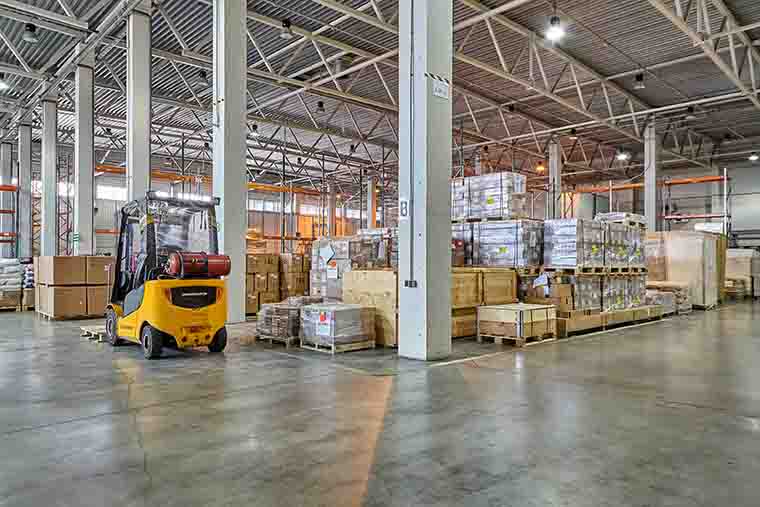Bonded Warehouses offer a vital service in international logistics, enabling businesses to store imported goods without immediately paying taxes or duties. These storage facilities provide secure and regulated spaces where merchandise can be kept until it is distributed within the national market or re-exported.
What Is a Bonded Warehouse?
A Bonded Warehouse, also known as a Customs Warehouse, is a specialized facility authorized to store imported goods without the immediate need for duty payments. Goods stored in these warehouses remain under customs supervision until they are either released for domestic distribution or re-exported. This close oversight ensures that all regulatory and tax requirements are met before goods are distributed.
Typically located near ports or airports, Bonded Warehouses are strategically designed to temporarily hold goods subject to import duties or other taxes, helping streamline both international shipping and customs processes.
Types of Bonded Warehouses
There are two main types of Bonded Warehouses, each serving different operational and regulatory needs:
Public
Public Bonded Warehouses are either state-owned or operated by private companies authorized by customs authorities. They provide secure storage for a wide range of goods under customs control. Public bonded warehouses can store various types of merchandise, including raw materials, manufactured products, and consumer goods. Types of public bonded warehouses include:
- Type A CW1: The warehouse owner holds responsibility for the goods stored.
- Type B CW2: Responsibility falls on the depositor (goods owner) as the regime holder.
- Type F CW3: Managed directly by customs authorities.
Private
In private Bonded Warehouses, the depositor (the entity authorized to hold the goods) is also the regime holder, making them responsible for both storage and regulatory compliance.
Main Objectives of a Bonded Warehouse
The primary purpose of a Bonded Warehouse is to ensure that foreign goods entering a country comply with relevant regulations before being released for consumption. While domestic goods can also be subject to bonded storage, this is less common.
Upon entering a Bonded Warehouse, goods are placed under customs control and cannot be released until all import duties and taxes are paid. Bonded storage not only plays a key role in customs regulation but also allows importers to defer these payments until goods exit the facility, providing an added advantage for cash flow management.
What are its main advantages?
Bonded Warehouses offer multiple benefits for both authorities and exporters. Let’s explore some of the key advantages:
- Safe and Secure Storage: Bonded warehouses provide a controlled and secure environment, often with additional services such as inventory management, packaging, and labeling.
- Deferred Import Duties and Taxes: By delaying tax payments until goods are released, importers benefit from improved cash flow and reduced costs associated with importing goods.
- Enhanced Security: Bonded Warehouses, like other general storage facilities, offer high levels of security and protection against theft, damage, and other risks.
How to Choose the Best Bonded Warehouse for Your Goods
Choosing the right Bonded Warehouse requires careful consideration of several factors to ensure the security and efficiency of your storage and distribution operations. Here are some essential criteria to help you make the best choice:
- Strategic Location The warehouse’s proximity to ports, airports, or borders is essential for reducing transportation costs and accelerating dispatch times. A warehouse close to your entry or exit points enables faster and more efficient movement of goods and may also provide easy access to additional logistical services, such as road, maritime, or air transport.
- Warehouse Type and Additional Services There are different types of bonded warehouses, including public and private ones, each suited to specific business needs. Consider which type fits your operation best and check if additional services like packaging, labeling, or inventory management are offered, as these can be highly beneficial for businesses looking to optimize their supply chain.
- Security and Technology Controls Security is crucial since goods may be stored for extended periods. The warehouse should have advanced security measures such as surveillance cameras, access controls, and 24-hour monitoring. Additionally, inventory management technology, such as real-time tracking software, ensures you can monitor your goods’ status, reducing risks of loss or damage.
- Storage Costs and Contract Terms Cost is a key factor. Evaluate the storage rates, payment terms, and any additional charges related to entry, exit, or extra services. Ensure the contract offers the flexibility to match your operational needs without exceeding your budget.
- Regulatory Compliance and Customs Expertise Ensuring that the Bonded Warehouse complies with all customs and tax regulations is critical to avoiding fines or delays. The warehouse should follow both local and international regulations and have skilled staff for customs handling. Working with experts like Partida Logistics, specialists in customs management, can simplify this process. Partida Logistics provides tailored advice to help your goods meet all necessary requirements in European countries and globally, streamlining import and export procedures.
- Reputation and Reliability of the Storage Provider Research the provider’s reputation and track record to ensure reliable and professional service, minimizing operational risks.
By considering these factors, you can select a Bonded Warehouse that not only meets your storage needs but also enhances your global logistics and commercial operations.




